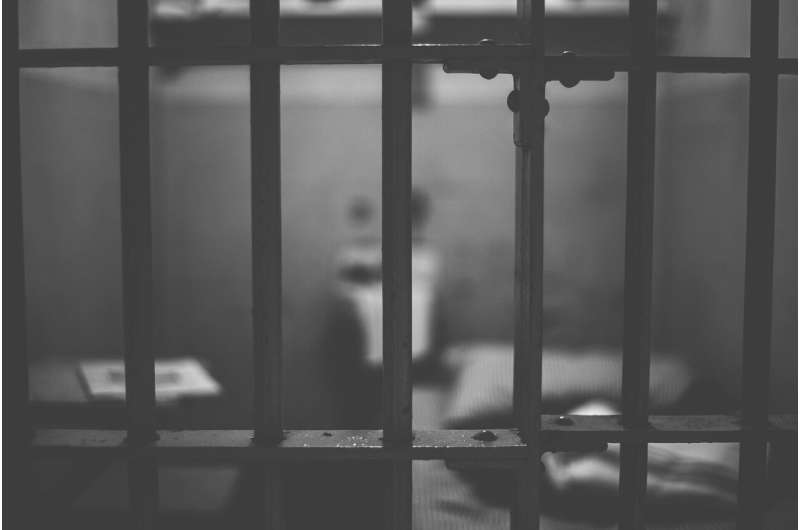Dads in prison can bring poverty, instability for families on the outside

Studies of the societal effects of prison often focus on the imprisoned: their physical and mental health, job prospects after release, their likelihood of returning to jail.
A new study from the University of Washington looks instead at families of men who are, or were recently, incarcerated—specifically, at where these families live, how often they move, and the social, and socioeconomic, fabric of their neighborhoods.
Using data from the national Fragile Families and Child Wellbeing Study—longitudinal research following thousands of families in 20 large U.S. cities since 1998—UW sociologist Christine Leibbrand and her co-authors examined residency among children whose fathers were in prison, or recently released, at the time of data collection.
The study is published in the November issue of Social Science Research.
The team found that, overall, children under the age of 18 whose fathers were incarcerated live in neighborhoods that are more socioeconomically disadvantaged than do children whose fathers have never been in prison. Families with a father in prison tend to live in neighborhoods with higher percentages of residents who are single mothers, residents who receive public assistance, residents with less than a high school education, and residents who live in poverty.
This stems primarily from financial hardship, researchers say, and can perpetuate what they call "downward mobility." A father in prison is one less wage-earner at home, or paying child support. Families with less money have fewer choices of where to live, they may move often, and the neighborhoods they end up in may be marked by lower quality schools, greater unemployment and higher rates of crime and violence.
"When we think about where people live or move to, we think of people weighing the pros and cons of different places. That's far too simple. Many families may be forced to move because of eviction or budget constraints, for example, and these forced moves are often to worse neighborhoods where families have little choice of where they would like to live," said Leibbrand, an acting assistant professor in the UW department of sociology.
According to the National Research Council, 2.2 million U.S. adults were in local, state or federal custody in 2012. A report from the U.S. Department of Justice found that in 2007, 1.7 million children, or 2.3% of the U.S. population under age 18, had a parent in prison. The impact of parent incarceration fell disproportionately on black and Hispanic children; black children were 7.5 times as likely, and Hispanic children 2.5 times as likely, as white children to have a parent in prison.
"We live in a country where we have huge numbers of children exposed to parental incarceration. When we talk about the need to reform the criminal justice and mass incarceration systems, we also need to talk about the unintended victims of the current system," Leibbrand said. "Incarceration exposes families to poverty and disadvantage, and the system can self-perpetuate inequality."
More information: Christine Leibbrand et al. Barring progress: The influence of paternal incarceration on families' neighborhood attainment, Social Science Research (2019). DOI: 10.1016/j.ssresearch.2019.06.012
Journal information: Social Science Research
Provided by University of Washington



















